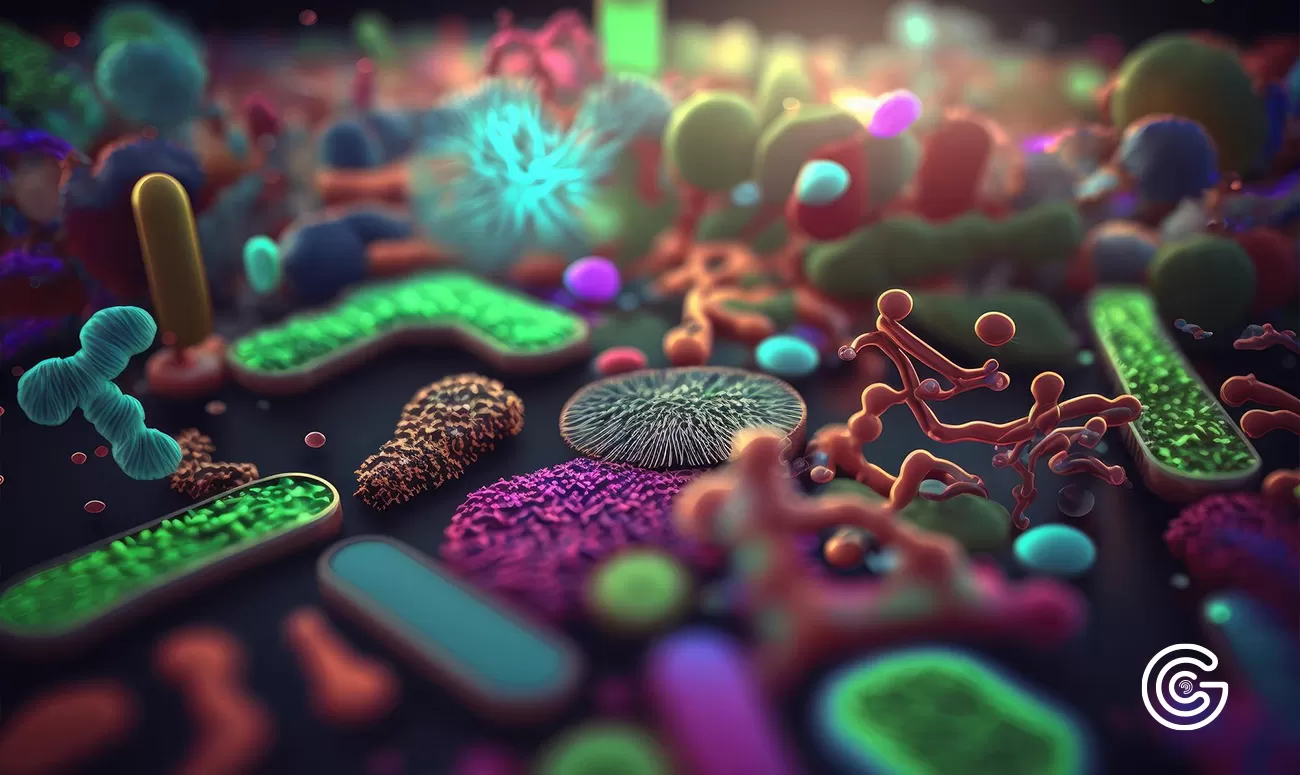The Importance of the Microbiome in our Lives: Unveiling the Invisible Superheroes
Introduction
Invisible to the naked eye but with a profound impact on our well-being, the microbiome is a bustling community of microorganisms that resides within our bodies. Composed of trillions of bacteria, viruses, fungi, and other microscopic organisms, this complex ecosystem plays a pivotal role in various aspects of our lives1. From supporting our immune system to influencing our mental health, the microbiome’s significance cannot be overstated. In this article, we will explore the importance of the microbiome and how it affects our overall health and well-being.
Defining the Microbiome
The microbiome refers to the collection of microorganisms that inhabit our bodies, particularly the digestive system, skin, and various mucosal surfaces2. These microorganisms are diverse and include bacteria, viruses, fungi, and other microbes. The gut microbiome, in particular, is the most extensively studied and has the greatest impact on our health

Aiding Digestion and Nutrient Absorption
One of the primary roles of the microbiome is to aid in the digestion and absorption of nutrients from the food we consume. The gut bacteria break down complex carbohydrates, fibers, and other indigestible substances that our bodies cannot metabolize independently. This process not only helps us extract energy from our food but also produces essential vitamins and short-chain fatty acids that contribute to our overall well-being1.
Boosting the Immune System
The microbiome is closely intertwined with our immune system, acting as a defense mechanism against harmful pathogens. A diverse and well-balanced microbiome helps strengthen the intestinal barrier, preventing the entry of harmful substances into our bloodstream. Moreover, certain gut bacteria promote the production of immune cells and regulate inflammation, which is vital for maintaining a robust immune response.
Mental Health and Brain Function
Recent research has unveiled a remarkable connection between the microbiome and our mental health3. The gut-brain axis, a bidirectional communication system between the gut and the brain, highlights the influence of the microbiome on our mood, cognition, and behavior. The microbiome produces neurotransmitters like serotonin, often referred to as the “happy hormone,” which plays a crucial role in regulating our mood. Furthermore, imbalances in the gut microbiota have been linked to mental health conditions such as anxiety, depression, and even neurodegenerative disorders.
Maintaining Weight and Metabolism
The composition of our gut microbiome has been found to impact our metabolism and weight regulation4. Certain bacteria extract more energy from food, leading to weight gain, while others support weight loss by enhancing fat metabolism. Studies have shown that individuals with a healthy and diverse gut microbiome tend to have a lower risk of obesity and metabolic disorders such as diabetes6.
Impact on Skin Health
Beyond the gut, the microbiome also influences the health and appearance of our skin2. The delicate balance of microorganisms on our skin’s surface helps protect it from harmful pathogens, prevents dryness, and supports the healing process of wounds and skin conditions. Disruptions in this balance can contribute to skin issues like acne, eczema, and dermatitis.
Strategies for a Healthy Microbiome
Maintaining a healthy microbiome is crucial for overall well-being. Here are a few strategies to support its health:
- Eat a balanced diet rich in fruits, vegetables, and fibers that nourish beneficial bacteria5.
- Avoid excessive use of antibiotics when possible, as they can disrupt the microbiome1.
- Manage stress levels, as stress can negatively impact the balance of the microbiome3.
- Consider incorporating probiotic-rich foods or supplements to support microbial diversity5.
- Maintain good hygiene practices without overusing antimicrobial products that can disrupt the skin microbiome7.
Conclusion
The microbiome is an intricate and dynamic ecosystem that significantly influences our health and well-being. From digestion and immunity to mental health and weight regulation, the microbiome’s impact on various aspects of our lives is undeniable. As our understanding of the microbiome continues to expand, it opens new avenues for therapeutic interventions, such as personalized probiotics and microbiome-targeted treatments. Nurturing a diverse and balanced microbiome through a healthy diet, regular exercise, and reduced use of antibiotics is crucial for optimizing our overall health and leading a vibrant life.
Order Gutcheck kit today to uncover your gut microbiome Click Here
References:
- 1. Cresci, G. A., & Bawden, E. (2015). Gut microbiome: what we do and don’t know. Nutrition in Clinical Practice, 30(6), 734-746.
- 2. Ursell, L. K., Metcalf, J. L., Parfrey, L. W., & Knight, R. (2012). Defining the human microbiome. Nutrition reviews, 70(suppl_1), S38-S44.
- 3. Cryan, J. F., O’Riordan, K. J., Cowan, C. S., Sandhu, K. V., Bastiaanssen, T. F., Boehme, M., … & Dinan, T. G. (2019). The microbiota-gut-brain axis. Physiological reviews.
- 4. John, G., Wang, L., Nanavati, J., Twose, C., Singh, R., & Mullin, G. (2018). Dietary Alteration of the Gut Microbiome and Its Impact on Weight and Fat Mass: A Systematic Review and Meta-Analysis. Genes, 9(3), 167. MDPI AG.
- 5. Tuohy, K. M., Probert, H. M., Smejkal, C. W., & Gibson, G. R. (2003). Using probiotics and prebiotics to improve gut health. Drug discovery today, 8(15), 692-700.
- 6. Vallianou, N., Stratigou, T., Christodoulatos, G. S., & Dalamaga, M. (2019). Understanding the role of the gut microbiome and microbial metabolites in obesity and obesity-associated metabolic disorders: current evidence and perspectives. Current obesity reports, 8, 317-332.
- 7. McLoughlin, I. J., Wright, E. M., Tagg, J. R., Jain, R., & Hale, J. D. (2022). Skin microbiome—the next frontier for probiotic intervention. Probiotics and Antimicrobial Proteins, 14(4), 630-647.